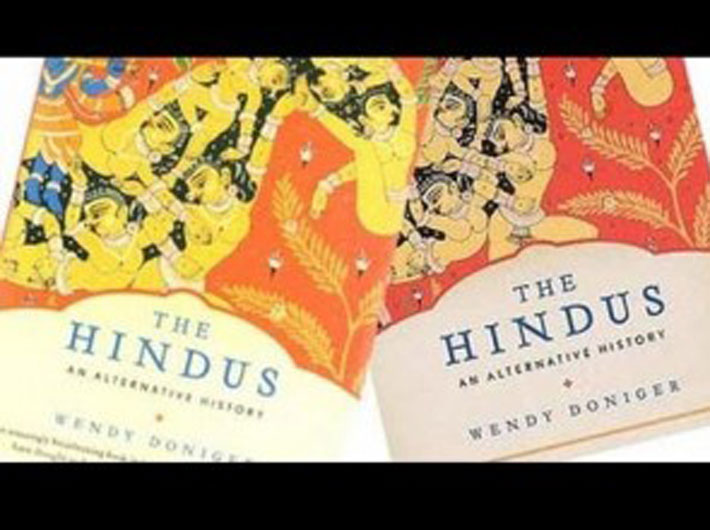I have been taught over the years that the word ‘recall’ is linked to memory. But I first encountered a different meaning of the word in 1997 when I was informed that my first Maruti 800 car, bought a year earlier, was being recalled to repair a manufacturing defect. I rushed to the service centre where my car was ‘recalled’ and got the vehicle back in less than five hours after getting it fixed. In the automobile industry, I later learnt, the word ‘recall’ is often an expression of a company’s care and alertness for customers.
I was little aware of the fact that my comprehension of the word ‘recall’ is still incomplete when I once again encountered the word in the context of a book called ‘The Hindus: An Alternative History’ by Wendy Doniger. On Tuesday, its publisher in India, Penguin Books, gave a written undertaking in the court stating that it would ‘recall’ the book and pulp its remaining copies within six months.
What does it mean? In fact, I bought Doniger’s book about four years back when it was published. I read, re-read and enjoyed it thoroughly from the unconventional viewpoint of mythology and history by the acclaimed Chicago professor whose proficiency in Sanskrit and history of Hinduism is legendary. She brought a fresh perspective on Hindu religion, decoded its mystic rituals and explained the Vedic hymns in simplistic and comprehensible terms.
For instance, she effectively repudiated the argument that vegetarianism was intrinsic to the ancient religion. Her explanation of the Ashwamedh Yajna and mention of instances of beef-eating by brahmins in ancient scriptures indicate the prevalence of animal sacrifice culture in the ancient religion as much as in any contemporary societies. Of course, her scholarly exposition is equally vocal about the prevalence of a set of female sexuality which does not conform to the worldview of modern-day puritans known as Hindutva brigade.
The beauty of her narrative is that she quoted scriptures and religious books extensively to prove that even gods were fallible. In other words, the qualities of a ‘Maryada Pushottam’ that Lord Rama is endowed with are more a creation of unsubstantiated fiction than mythology weaved in ancient books. Indeed, Doniger’s book is a treat for those who do not have a rigid mindset of maintaining that everything that Hinduism preached and practised is sacrosanct and beyond reproach.
Since Penguin India has agreed to withdraw the book obviously under pressure from a Delhi-based Hindutva group, I am a little perplexed about the fate of the book I purchased in 2009. Should I retain the copy or return it to the publisher? However, unlike my Maruti car, the publisher would not return it in five hours with correction but pulp it down. It means that my book would become a dough of pulp and irretrievable for future. But is this not destruction of a scholarly creation?
We all know it is. Yet we fool ourselves with the word like ‘recall’ or ‘withdraw’ and use these euphemisms for gagging and destruction. What is most alarming is the fact that the publisher is forced to destroy its own work by a non-state actor while the state is a silent colluder in the process. It would be interesting to watch as to how far those forcing the destruction of Doniger’s book can stretch their logic.
Hindu scriptures and textual traditions are full of contradictions and heresies. More recently, in the 19th century, writings by Jyotiba Phule and Periyar often bordered on blasphemy against the orthodox Hinduism, a cause espoused by the Hindutva brigade. There are many little traditions and mythologies that militate against the codified definition of Hinduism by such right-wing extremists. Will they also make an attempt to destroy them?
In introduction to her book, Doniger begins with a short anecdote of Mulla Nasruddin which runs as follows: “Someone saw Nasruddin searching on the ground. “What have you lost, Mulla,” he asked. “My key,” said the Mulla. So they both went down on their knees and looked for it. After a time the other man asked, “Where exactly did you drop it?” “In my own house.” “Then why are you looking here?” “There is more light here than inside my own house.” This sufi parable aptly sums up not only the predicament of the Indian state but also that of Hinduism which is sought to be converted into a rigid and codified religion by a group of intolerant bigots.



